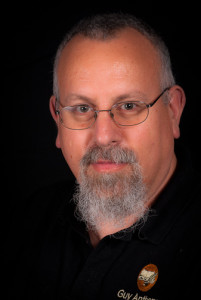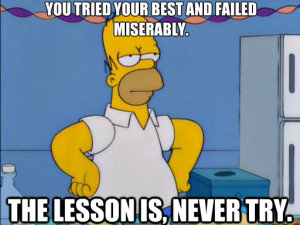“Come in, — come in! and know me better, man!” -Charles Dickens, A Christmas Carol
We’d love for you, our wonderful readers, to get to know us better. That’s why, each month, Kristin Luna will interview a member of The Fictorians. We’ll learn more about each member, such as their writing processes, their work, where they live, and what they prefer to drink on a crisp winter day. We hope you enjoy this monthly installment of Meet the Fictorians.
Meet the Fictorians:
Guy Anthony De Marco

Kristin Luna (KL): Hi Guy! How are you doing and what are you drinking today?
Guy Anthony De Marco (GADM): Coffee. Lots of coffee. Coffee with coffee on top. It’s a good thing I’m not a single-malt Scotch drinker because I’d be spilling my glass of Glenfiddich 40-year old single malt all over the carpet because of the caffeine jitters.
Sometimes I toss in an Irish Breakfast tea to mix things up, or I drink the really hard stuff — egg nog.
KL: Oo, Glenfiddich. I like Balvenie myself. Don’t even get me started on egg nog. Yum! Okay, back on subject… You’ve been a Fictorian for quite some time. When did you join, and could you tell the fine people what all do you do for us?
GADM: I was invited by Quincy J. Allen (link: http://www.quincyallen.com) to write a couple of articles a few years ago, and then I woke up months later and I was a member. Since then, I write the occasional article, post a comment or two, and poke around the back end of the website. I’m familiar and comfortable doing so because I have over three decades in the Information Technology field. I’m not the site admin, but I do keep a watch on things and install updates, plus the little things such as dumping the spam out of the comments. We get over 50 spam comments a day, so that’s a sign the site is spreading. If only the spammers purchased books, we’d all be millionaires. Or at least hundredaires.
I’m also the unofficial “I need a post by tonight” guy. If you see several posts with my byline, odds are there were spots that needed an article. I write fast, and I’m now even working with Dragon Dictate, which helped me to hit my NaNoWriMo 2016 goal in two days.
KL: Not only do you help us out with our website, you are downright prolific when it comes to how much writing you produce. When you’re working on a project, how many words do you average a day, and in a week?
GADM: I have a bunch of pseudonyms I write under, so they all need to be fed. I think my record was 48K words in 12 hours. My usual rate is 2.5K/day on a slow day to 6K/day on a “looming deadline” day. Dragon is boosting those numbers lately, but the first drafts are pretty horrific to look at. Between drafting and editing, it all balances out in the end.
KL: I’m in awe, really. So what’s some of the best advice you’ve received about being productive? What works for you that you could pass on to the rest of us?
GADM: I guess the best advice is just doing the basics. Place your buttocks in a comfy chair and write so it becomes a habit. Understand that your first draft is not a polished manuscript. Allow yourself to suck and tell the editor in your head that she will get her turn later after you’ve dumped the basics onto the digital page. That last piece worked the best for me as far as productivity.
KL: You’ve written short stories for anthologies along with long fiction. What’s your favorite short story you’ve written, what’s it about, and where can we buy it?
GADM: My favorite short story is “Sally the Baker” from the early 1980s. It’s long out of print, although I’m thinking about reworking the story. The original is about a group of adventurers who force a gent named Sally to join their quest to take on an evil wizard. Unfortunately, Sally is an amazing baker with no other skills. In the end, he does save the day when they burst into a high-level evil wizard conference and Sally tosses a handful of flour into the air and starts screaming “Death Dust!” at the top of his lungs. The wizards scatter, the adventurers recover the item they were looking for, and they all escape with their hides.
For a still-available short story, I’d recommend “Grubstake” from Supernatural Colorado or “The Fate Worse Than Death” in Unidentified Funny Objects 3, which I co-wrote with Kevin J. Anderson.
KL: You have a number of titles available on Amazon. Do you find that you like writing short fiction or long fiction better?
GADM: I like writing drabbles or flash fiction best because it takes a lot of work to hit the word count, especially the 100-word drabbles. It’s like writing poetry for me, which I dabble in. As far as prose, I like short and long fiction equally. I write novels like a collection of short stories. That’s how I outline long works…a series of short stories in a tight flying formation.
KL: What are you currently working on?
GADM: I’m in the midst of NaNoWriMo at the moment. I hit my 50K in a couple of days. My record is over 300K. I have a cyberpunk novel in work, plus two horror novels and a bunch of erotica novellas. I’m trying to get 20 erotica works done to launch a new pseudonym.
KL: Ambitious! Who are some authors that inspire you?
GADM: Tonya L. De Marco is always helping me by editing and finding more stories to write. Kevin J. Anderson inspires me to write more because he is almost at the point where he thinks of a story and it magically appears on paper. Sam Knight inspires me to treat others with respect and kindness. I also enjoy reading lots of classics from Asimov, Heinlein, Clarke, and the rest of the usual gang — plus digging up old pulps and enjoying forgotten speculative fiction authors.
KL: Yeah, that Sam Knight is good people! Other than advice on productivity, what advice have you received through your years of writing that has stuck with you?
GADM: Find a group of like-minded individuals and work together, like a local writing collective. Seek out folks who know how to edit and are not afraid to tell you what works and what sucks. Find beta readers and treat them like gold. Always be nice to others, even if they’re not. Especially if they’re not…they need to see how a professional acts. Support everyone and never talk down or bad-mouth anyone. It’s easy to pick on authors, such as Stephenie Meyer, who wrote Twilight. I’ve been on several panels where they bash on her, but I always say she was laughing all the way to the bank. She wrote something that caught the attention of the reading public, and even though it’s not my cup of tea, it sold well and made her a household name. I’d like that to happen to me someday.
I would also recommend joining a professional writing organization. Some of them can help you on the way to greatness, sorta like Slytherin House. I’ve been impressed with what Cat Rambo has been doing with SFWA, so I’d suggest considering them first.
KL: And finally, what’s your favorite Fictorians post that you’ve written?
GADM: To be honest, I don’t particularly have a favorite. If I had to choose, I’d probably go with “Putting a Fresh Clip in My Revolver,” “My Muse is Dead,” or DMCA Tools. All of those generated some good feedback from Fictorians readers.
***
If you have any questions for Guy, please leave a comment below. Thank you for reading!
 When it comes to famous friendships, the one that first comes to mind is the bond between C.S. Lewis and J.R.R. Tolkien. Their friendship developed through their writing group, The Inklings, which met in a pub called The Eagle and Child, or as they affectionately called it, The Bird and Baby. Over years of critiquing and beers, a number of the Inklings went on to be published, as well as become some of the most respected authors in history.
When it comes to famous friendships, the one that first comes to mind is the bond between C.S. Lewis and J.R.R. Tolkien. Their friendship developed through their writing group, The Inklings, which met in a pub called The Eagle and Child, or as they affectionately called it, The Bird and Baby. Over years of critiquing and beers, a number of the Inklings went on to be published, as well as become some of the most respected authors in history. In college, I was fortunate enough to take a J.R.R. Tolkien class from one of the most renowned C.S. Lewis scholars in the world, Diana Glyer. Naturally her studies of Lewis led her to the study of Tolkien as well. Diana Glyer recently released the book Bandersnatch: C. S. Lewis, J. R. R. Tolkien and the Creative Collaboration of the Inklings, which focuses on the relationships, successes, and pitfalls of the group. No one else that I know of, save for Christopher Tolkien, knows The Inklings like my former professor Diana Glyer. She’s devoted much of her life to passionately researching them.
In college, I was fortunate enough to take a J.R.R. Tolkien class from one of the most renowned C.S. Lewis scholars in the world, Diana Glyer. Naturally her studies of Lewis led her to the study of Tolkien as well. Diana Glyer recently released the book Bandersnatch: C. S. Lewis, J. R. R. Tolkien and the Creative Collaboration of the Inklings, which focuses on the relationships, successes, and pitfalls of the group. No one else that I know of, save for Christopher Tolkien, knows The Inklings like my former professor Diana Glyer. She’s devoted much of her life to passionately researching them.

